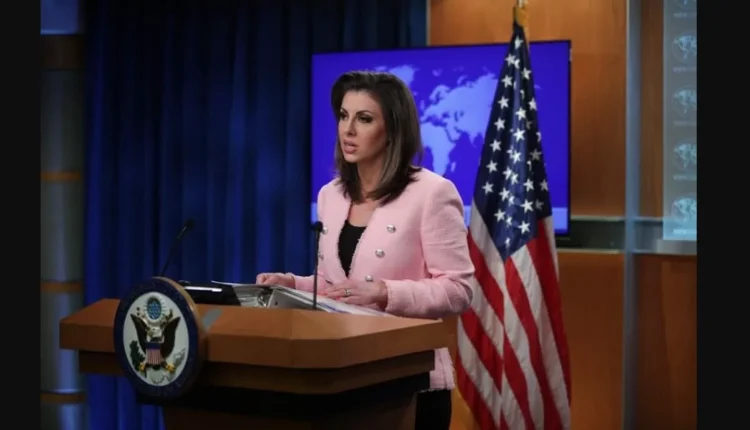U.S. Presents Key Demands to Syrian Transitional Government, Emphasizing Minority Protections
By Kardo Roj
WASHINGTON, U.S. (North Press) – The United States has presented a list of political and human rights demands to Syria’s transitional president, Ahmad al-Shar’a, outlining prerequisites for lifting economic sanctions and initiating international investment, U.S. Deputy Special Envoy to the Middle East Morgan Ortagus said on Thursday.
During a televised interview, Ortagus revealed that Washington delivered the demands to al-Shar’a earlier this week, emphasizing protections for ethnic and religious minorities, including Kurds, Christians, Druze, and Alawites, as a cornerstone for any future normalization with the international community.
“We not only seek their protection, but also their full participation in governance,” Ortagus stated. “We want to ensure that President al-Shar’a governs in a way that benefits all Syrians.”
The announcement marks a pivotal development in Washington’s engagement with Syria’s transitional authorities, whose emergence follows a period of tentative diplomatic shifts in the region.
Ortagus declined to disclose the full content of the list but emphasized that some demands remained confidential. However, she underscored the importance of peace with neighboring countries and a broader regional alignment as part of the expectations from the transitional government.
Her remarks follow a recent meeting in Antalya, Turkey, between Syrian Foreign Minister As’ad al-Shibani and his American counterpart, Marco Rubio. In a statement issued after the meeting, the U.S. Department of State welcomed Syrian government overtures, including its declared intent to seek peace with Israel and reduce Iranian influence within Syria.
The statement also reaffirmed U.S. expectations regarding human rights and accountability for missing or deceased American citizens in Syria, in addition to the elimination of any remaining chemical weapons.
“Secretary Rubio emphasized the critical importance of protecting the human rights of all Syrians, regardless of ethnicity or religion,” the statement read.
The focus on minority rights comes amid growing international attention to the governance structure of northeast Syria, where the Autonomous Administration of North and East Syria (AANES) and its security forces, the Syrian Democratic Forces (SDF), have maintained relative stability in a region marked by protracted conflict.
Over the past decade, the SDF—with U.S. support—has been instrumental in countering Islamic State (ISIS) remnants and maintaining a local security apparatus that includes representatives from Kurdish, Arab, and Assyrian communities. While not officially part of the current transitional government, the AANES has consistently advocated for decentralized governance and political inclusion.

